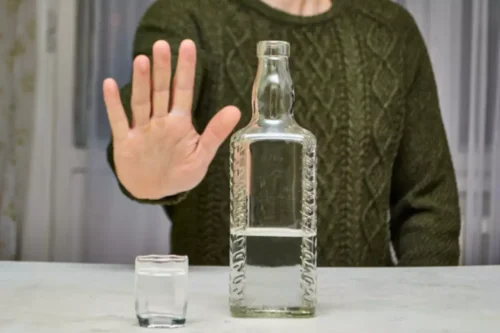
They also often come with additional mental health, medical, recovery or educational services that help people get accustomed to their new lives. https://ecosoberhouse.com/ Both sober living homes and halfway houses support people recovering from substance use disorders. Both of them also offer access to resources that can help you with early recovery.

A Complete Guide To Sober Living Homes

The facilities are usually pleasant and can include private rooms Sober House and bathrooms. All sober living homes have a zero-tolerance policy regarding the use of drugs or alcohol. Usually, residents have recently completed inpatient or intensive outpatient treatment for substance use addiction. Sometimes, sober living houses also act as a stand-alone approach for substance misuse problems, meaning that someone will go straight there without first attending a residential treatment center. The average stay in sober living homes typically ranges from 166 to 254 days. This duration is essential as individuals transition from formal treatment to independent living.
Where Can You Find a Halfway House?

By living together, sharing experiences, difficulties, and accomplishments, and participating in communal activities, residents can build a strong support system that will assist them in long-term recovery. Resuming work and other activities can be difficult after recovery, but living with people who understand your struggles can help. Join our supportive sober community where each day becomes a step towards personal growth and lasting positive change. Some homes require signing out when leaving the home and signing in when returning.
What to Expect in Sober Living Homes
In most sober-living environments, bedrooms are shared, but some do provide individual rooms. Typically, there are rules about shared living spaces and individual room maintenance and chores, visitor hours, meal times, curfews and Twelve Step meeting requirements. Also like other sober-living environments, halfway houses generally have systems in place to keep residents sober, and drugs tests are usually administered to monitor for any substance use.
What benefits do sober living homes offer in the recovery process?

Sober living homes and alcoholism symptoms halfway houses are both types of residential environments designed to support those in recovery from addiction. While there are similarities between these two types of community, there are also important differences to consider. Yes, many sober living homes cater to distinct demographics, focusing on gender, age, or specific recovery needs.
Nighttime is often reserved for free time when you can call loved ones, read books, or watch television. If you are interested in exploring sober living in California, see if you can find what you’re looking for with the most frequently asked questions we receive here at Gratitude Lodge in Southern California. Dr. Kennedy also suggests touring the home and asking to speak with current residents or alumni.
- In particular, sober living and halfway houses can help somebody maintain recovery by providing a safe, sober environment.
- For others, you can remain in a sober-living environment after treatment is completed.
- It further provides an environment to support recovery from substance abuse for those who are emerging from rehab.
- This effect can cause ongoing problems and make someone reluctant to return home after addiction treatment.
- However, most sober living houses do not require you to have had any specific type or amount of addiction treatment before entering.
The Difference Between Halfway Houses and Sober Living Homes
Those who live in these houses rent rooms indefinitely and live a life in accordance with their responsibilities, like work and school. People who live in sober homes report that they are non-judgmental and safe spaces where they can focus on their continued recovery. As the others in the house are in the same situation, they can be authentic without having to explain their addiction or recovery needs. By encouraging a sense of community and togetherness, recovering people are motivated to bond with others, support each other, and continue sobriety to retain their place in the house.